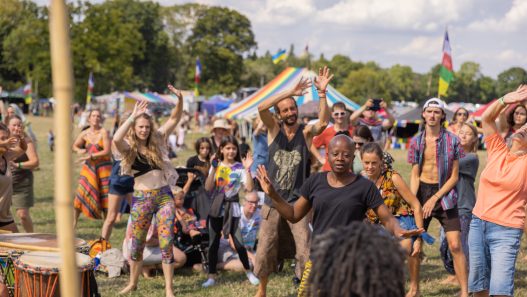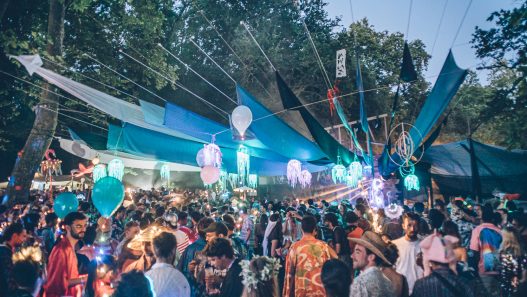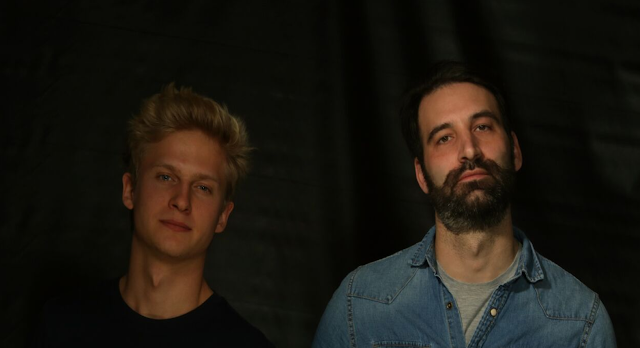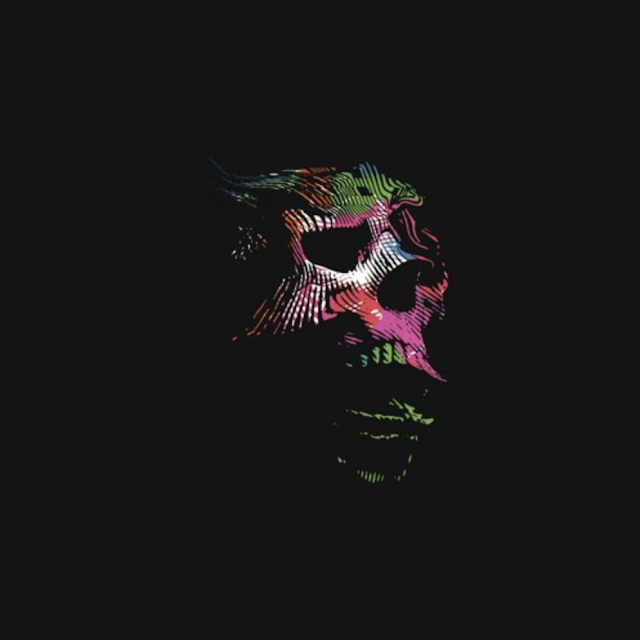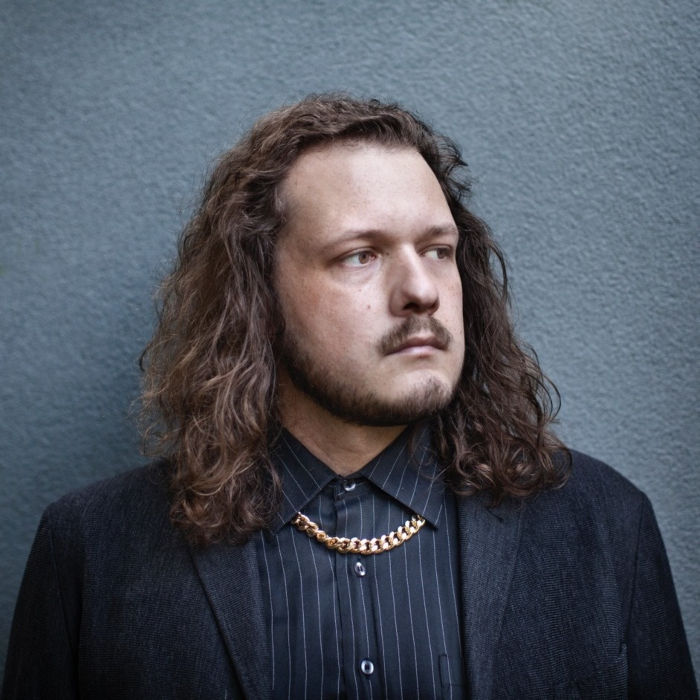Seemingly unafraid of trying new things, Ed is Dead has played around with artificial intelligence and created his newest release, a track entitled ‘Wolfram Alpha’. The track seems to be more about feeling than logical progression. There is a natural unravelling that occurs, giving the track a quality of spontaneity. It is the antithesis of stiff. Moving from one form of expression to another, it evolves as if it were a living thing, which indeed it is.
Stream / Download: Ed is Dead – ‘Wolfram Alpha’
We spoke with Ed is Dead to discuss the creation of this so-called musical lifeform, how he came into music, his favourite plugins, and more.
Hey, Ed. Welcome to BSMNT Club.
Hi and thank you for the interview, a true pleasure!
You created your latest song using AI. How did it affect your creativity?
For now, it’s a tool that speeds up the process of generating ideas for me and allows me to, for example, change vocal tones. It also helps in editing or mixing processes. Creatively speaking, I think the more stereotypical the music you want to make, the more you can rely on AI. But that’s not the case for me at the moment.
With the emergence of this technology, where do you see the music industry in a few years from now?
I think AI has simply accelerated the process in which art becomes Industry and participates in the worst face of capitalism. It seems as if everything is orchestrated on purpose. For example, first, we get the average listener used to autotune, shorten songs, simplify music to unimaginable limits, ridicule maturity in lyrics. And then we’re surprised that an AI can clone it? I believe that in the very long run, mainstream music will no longer be created by humans, but there will be a kind of “audiophile niche” where the uniqueness and complexity of the artist will be highly valued.
Can you tell us a bit about how you got into music?
It’s a long story, but basically, as a child, I sought refuge in music and taught myself to play the piano. Over the years, I ended up playing percussion and, against all odds, started touring with bands and making a living as a drummer. In parallel, electronic music became a passion of mine. What used to be my hobbies – creating and DJing crude hip-hop or drum ‘n’ bass beats – eventually turned into my profession.
Give us a sense of the music scene where you are based.
Well, to be 100% honest, in my city, and almost by extension in my country, the musical scene that I align myself with is tremendously small, if not nonexistent. I suppose I belong to a generation that grew up listening to IDM, breaks, Drum ‘n’ Bass, as well as genres like Metal, Grunge, Trip-hop, and Rap. While I’ve had periods in my life where dance music and the club scene were a part of it, I currently find myself drawn to more cerebral music that isn’t so closely tied to the nightlife. I’ve never been a fan of labels, and I’ve always had the challenge of enjoying and creating diverse genres of music.
Tell us about your studio set-up and gear.
I have a kind of Diogenes syndrome when it comes to synths, but I’m not a 100% advocate of analog only. I also find many aspects of the digital world super interesting, such as granular synthesis, among other things. I mostly work with Cubase, although sometimes I use Ableton/Max DSP for sound design. As for my synths, I think I would keep the Prophet 6, Korg Alpha, Matrixbrute, and recently the Waldorf Iridium. I’m addicted to plugins, and I love trying out new things and stepping out of my comfort zone. Some recent ones I’ve been using are Novum for granular synthesis, Phaseplant and Serum as versatile options for almost everything, and this week, I’m trying out Excite’s Motion for distorting and adding movement to leads.
What are some of your key musical influences?
I can imagine that the list of artists I mentioned would change completely every five minutes. Some of the ones I can recall right now are Squarepusher, Nirvana, Queens of the Stone Age, Björk, Air, DJ Shadow, Noisia, Aphex Twin, Korn, Deftones, Pantera, Aphrodite, Massive Attack, Portishead, Refused, The Dillinger Escape Plan, Art Blakey, Otis Redding, trentemøller, and also some salsa, Latin music, reggae, and dub, I suppose… (As I write, I’m regretting everything I’m forgetting, so I’ll stop here).
As an artist, how do you infuse your music with emotion?
This is a challenging topic. I suppose it’s delicate, especially when you’re involved in electronic music, to not let technology dictate your creative process and to infuse soul, or at least try to, into your compositions. I believe that freeing myself from certain common protocols in music composition with DAWs (such as setting BPMs for a track without even knowing the story I want to tell) allows me to approach it more like a compositional process with ‘organic’ instruments. I try to base it on concepts, and for example, approaching the introduction of instruments as I would when composing pieces for contemporary dance helps me avoid approaching the music in such a rigid manner, as is often the case in more standard electronic genres.
In your opinion, how has bass music evolved over the last few years?
I agree that the term ‘Bass Music’ has evolved tremendously and encompasses a wide range of styles. It spans from mainstream and stereotypical sounds that I may not personally connect with, to truly cutting-edge styles where you can still sense a bit of that experimental spirit from the early days of Dubstep or Drum ‘n’ Bass/Jungle. One common aspect of Bass Music, I believe, is that it probably includes some of the most technically demanding genres to produce, along with genres like hardstyle.
What has been a memorable highlight of your career so far?
Mmm, officially I should probably mention something like playing at the opening of Sonar or a similar massive event, but honestly, some of the happiest moments have been very intimate. Like about a year ago when I DJ’d with my friend Piek at a club with around 100 people in Pamplona, or when Arca came to work at my studio. I think my greatest moments are when the music is above absolutely everything else.
Who do you look up to in the DJ world?
I don’t admire any current DJs, but I do admire many producers who also DJ. However, honestly, what the DJing world has become makes me cringe. I love genuine music selectors who blow my mind with their track selection. But technically, a DJ set doesn’t impress me anymore. On the contrary, people like Thys, Two Fingers, Skylark, Little Snake, Misanthrop, and many of the big names in Drum ‘n’ Bass and breaks, whenever they release a new track, it restores my hope in music and truly makes me very, very happy.
If you weren’t a musician what would you be?
Mmm, probably MTB Enduro Pro rider (haha, I wish!).
What can we expect from you in the near future? Any upcoming projects or gigs in the pipeline that you would like to tell us about?
Usually, I release an album every two years, and it consumes a lot of my time and energy. However, this year, I’ve taken a more relaxed approach and focused on releasing singles and collaborating with other artists, as well as working on soundtracks for films and theatre. Taking this more laid-back approach has been beneficial for me as it allows me time to ‘lose” myself in playing with synths and experimenting. So, I will continue to release tracks under my name, like Ed is Dead, or under my new aka, Daed Side.
Tour Dates:
07 July – (Cultural Event), Albania
16 Sept – Cuerpo Romo Festival, Teatros del Canal – Madrid, Spain
29 Sept – Entropia Festival, Zaragoza, Spain
Follow Ed is Dead:
Website – Facebook – Twitter – Soundcloud – TikTok – Youtube – Instagram – Spotify



